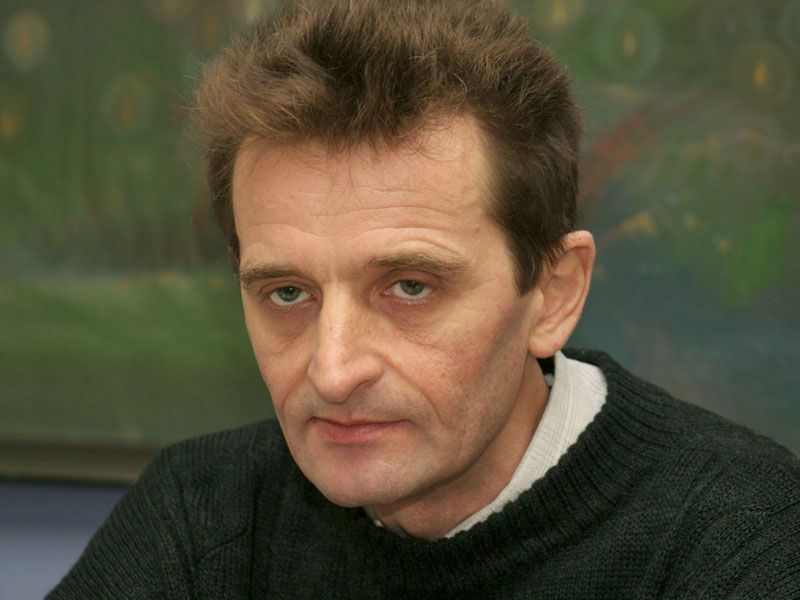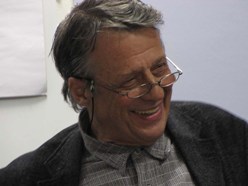Civic activists and human rights defenders from Belarus and other countries gathered for the round table discussion on “The Strategies for Eliminating Political Repressions in Belarus” organised by NGO Civic Belarus and the Civic Committee for Rehabilitating Political Repression Victims.
They acknowledged that there were still political prisoners in Belarus, cases about disappearances of prominent opposition politicians still left without answers and proper investigation, numerous cases of violations of political and economic freedoms.
 Ihar Lednik, a head of Civic Committee for Rehabilitating Political Repression Victims, did not hide his concerns: “In Belarus thousands of people were repressed for their political believes. Until now our comrades and colleagues, leaders of the small entrepreneurs’ movement, are imprisoned.”
Ihar Lednik, a head of Civic Committee for Rehabilitating Political Repression Victims, did not hide his concerns: “In Belarus thousands of people were repressed for their political believes. Until now our comrades and colleagues, leaders of the small entrepreneurs’ movement, are imprisoned.”
He commented to Deutsche Welle that together with international experts they are planning to work on a draft law rehabilitating repression victims and bringing up to justice those involved. The Universal Human Rights Declaration would be taken as a base for the proposal. The law could potentially influence the situation in Belarus even now, without the parliament passing the law formally. The draft is important so that “victims of repressions and executers could see the perspective – what would be out there for them. To continue struggle without the perspective is incredibly difficult.”
According to Mr Lednik, Belarusians encounter repressions not only in the political sphere but also in the economic one: “I used to be a businessman and from a personal example knew what it means when you cross economic interests of the ruling clan.”
Petr Uhl, an expert in legal forms of rehabilitation from Czech Republic, a former political prisoner himself and later an MP, consulted the Belarusians  responsible for drafting a proposal during the round table in Vilnius.
responsible for drafting a proposal during the round table in Vilnius.
The Czech expert sees some other ways for improving the human rights situation in Belarus, especially when the country would be willing to join the Council of Europe.
“If Belarus ratifies the European Convention on Human Rights and Fundamental Freedoms, the Belarusian citizens will have the right to appeal to the Court in Strasbourg. This a practical tool for everybody; the Belarusian state would have to respect the freedoms of speech, association, expression, etc. In the opposite case it would have to pay fines and deal with the international pressures,” Petr Uhl said.
Belarus and Vatican are the only countries in Europe that are not members of the Council of Europe.


